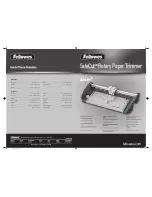
BeneVision N1 Patient Monitor Operator’s Manual
1 - 1
1
Safety
1.1
Safety Information
WARNING
•
Indicates a potential hazard or unsafe practice that, if not avoided, could result in death or serious
injury.
CAUTION
•
Indicates a potential hazard or unsafe practice that, if not avoided, could result in minor personal
injury or product/property damage.
NOTE
•
Provides application tips or other useful information to ensure that you get the most from your
product.
1.1.1
Warnings
WARNING
•
This equipment is used for single patient at a time.
•
To avoid explosion hazard, do not use the equipment in the presence of oxygen-rich atmospheres,
flammable anesthetics, or other flammable agents.
•
MR unsafe: the N Series monitors are not intended to be used within the Magnetic Resonance (MR)
environment.
•
Before connecting the equipment to the power line, check that the voltage and frequency ratings of
the power line are the same as those indicated on the equipment’s label or in this manual.
•
Before putting the system into operation, the operator must verify that the equipment, connecting
cables and accessories are in correct working order and operating condition.
•
To avoid risk of electric shock, the equipment must only be connected to mains power with
protective earth. If a protective earth conductor is not provided, operate it on battery power, if
possible.
•
Do not touch the patient and live parts simultaneously. Otherwise patient injury may result.
•
Do not come into contact with the patient during defibrillation. Otherwise serious injury or death
could result.
•
Do not open the equipment housings. All servicing and future upgrades must be carried out by
trained and authorized personnel.
•
Do not rely exclusively on the audible alarm system for patient monitoring. Turning the alarm
volume to a low level or off may result in a hazard to the patient. Remember that alarm settings
should be customized according to patient situations. Always keep the patient under close
surveillance.
•
The physiological data and alarm messages displayed on the equipment are for reference only and
cannot be directly used for diagnostic interpretation.
•
Route, wrap and secure the cables to avoid inadvertent disconnection, stumbling and
entanglement.
•
Do not place the equipment or accessories in any position that might cause it to fall on the patient.
•
Do not start or operate the equipment unless the setup was verified to be correct.
















































